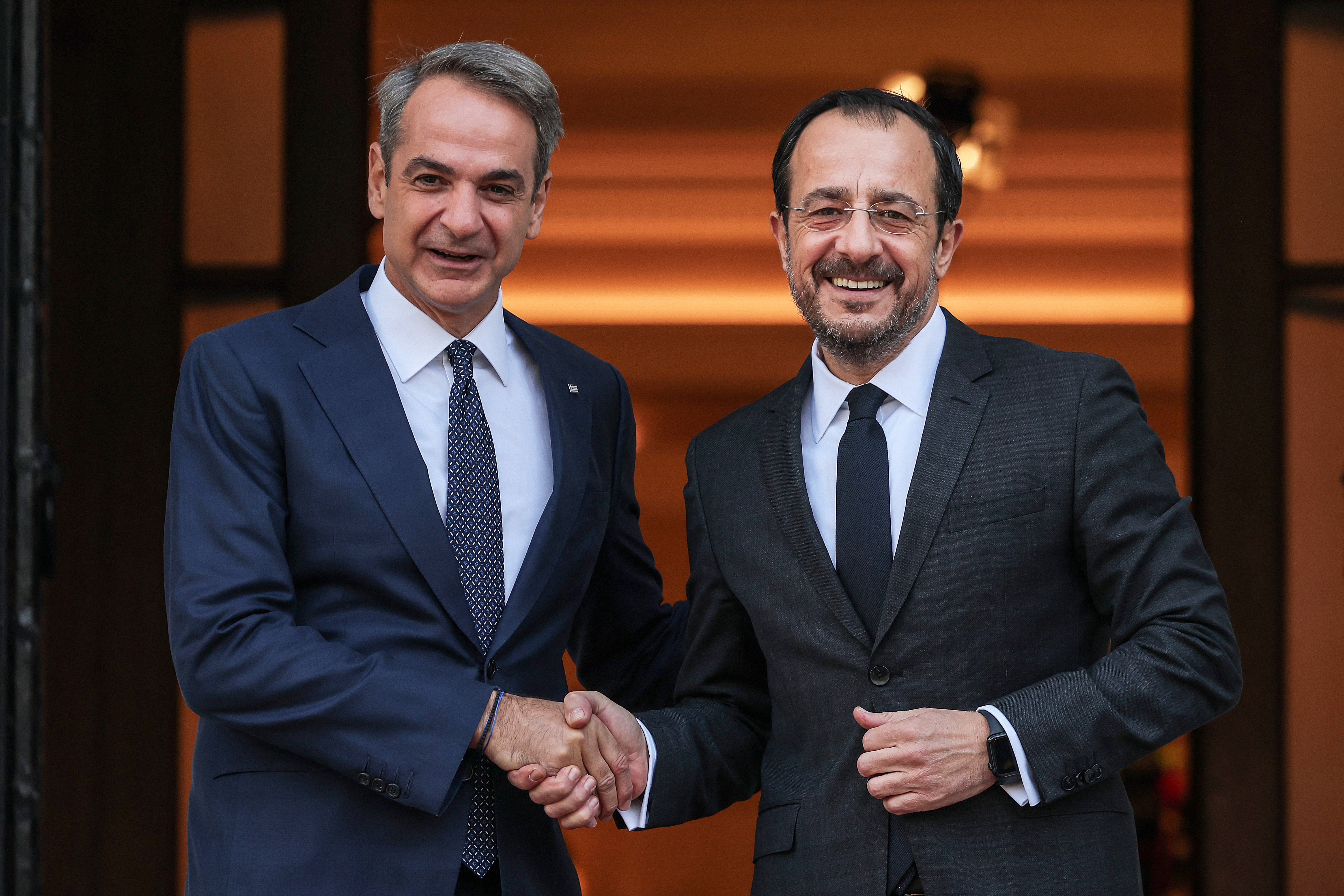Cyprus and Greece both have a duty to “defend security and stability” in the two countries and the wider region, Cypriot President Nikos Christodoulides said on Wednesday at the conclusion of the day’s intergovernmental summit with the Greek government in Athens.
“We share common roots, common values, a common vision, and a common duty: to defend security and stability both in our countries and in our neighbourhood, as well as of course the wellbeing of our citizens,” he said.
To this end, he highlighted the European Union’s Security Action for Europe (Safe) programme, saying that by creating the instrument the EU is “investing in strengthening the defence industry and at the same time contributing to the security and strategic autonomy of the EU”.
His comments come after Greek Defence Minister Nikos Dendias had said during a visit to Cyprus earlier this week that Cyprus’ forthcoming undertaking of the Council of the European Union’s rotating presidency in the first half of next year will “provide a huge opportunity” to both Cyprus and Greece, as well as both countries’ defence industries.
He added that the Safe programme “provides an opportunity” for both countries to “deepen cooperation”.
Asked about the prospect of Turkey joining the Safe programme, he said that “[Cypriot Defence Minister Vasilis Palmas] and I are perhaps among the few people in Europe who have sat down and read the regulation concerning the Safe programme”.
The regulation, he said, is “extremely complex, written in the strange language of the Brussels bureaucracy, precisely so that everyone can understand what they think and express what they judge”.
Despite this, he said, “there is a clear commitment on the part of the European Commission on the way in which contracts between the EU and third countries will be introduced for discussion”.
Then asked if such matters will require unanimity among the EU’s 27 member states, he said that this is “self-evident”, because, he explained, “if someone threatens the EU itself, it is obvious that they cannot participate in the mechanism which is built to deal with this aggression”.
“We expect all European countries to unite around the self-evident concept of protecting the European space, not only geographically, but of European values, of democracy, and of the European approach to the protection of human rights,” he said.
European Council president Antonio Costa had said during a visit to Cyprus in September that the Safe programme’s rules are “clear”, and that the programme is “open to third countries, but to third countries which do not constitute a threat to the security of any member state”.
Meanwhile, last month, Greece’s foreign ministry’s spokeswoman Lana Zochiou confirmed that her country intended to veto Turkey’s participation in the programme unless the country rescinds a parliamentary resolution signed in 1995 regarding both country’s claims in the Aegean sea.
The Turkish parliament had declared at the time that any unilateral action by Greece beyond 12 nautical miles from the country’s coast in the Aegean sea would constitute a “casus belli” – a reason to go to war.
“As long as the casus belli remains, Greece will not accept Turkey’s participation in Safe. The lifting of the casus belli is a necessary condition for the discussion to begin,” Zochiou said.
Cyprus secured over €1 billion of funding through the Safe programme, while Greece secured a little less than €788m.
In addition to Cyprus and Greece, 17 other EU member states are also in line to receive funding as part of the €150bnallocated by the European Commission to the programme earlier this year.






Click here to change your cookie preferences